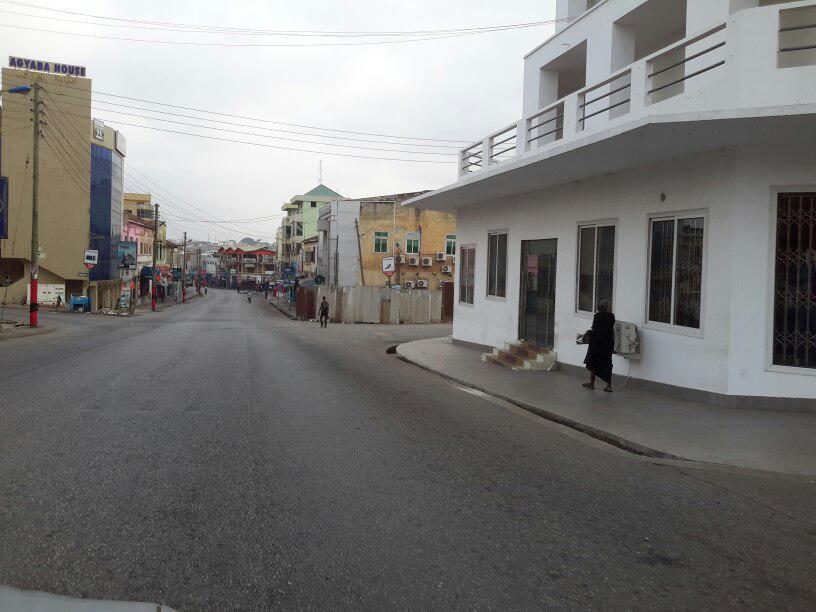Bedtime comes early for residents in Ashanti regional capital Kumasi where a curfew is invoked as part of the final funeral rites of the late Asantehemaa, Nana Afia Kobi Serwaa Ampem.
This is one of the highlights of the funeral rites that lasts 15 days and that bars any other funeral within the kingdom.
The deceased queenmother is getting the mother of all funerals treatment in the region where culture and tradition have shrugged off the influence of westernization.
This evening no one is to be seen on the streets of Kumasi, shops and bars are closed in a move where compliance is certain and guaranteed. The curfew lasts from 9 pm to 5 am.
Explaining what happens during the curfew, a historian at the Manhyia Palace Nana Osei Bonsu Sarfo Kantanka said, the king and queen would go the where the queen who has passed away was buried.
The ancestral home at Breman is about eight kilometres from Manhyia, the royal palace
It will be a midnight gathering at the tomb where an effigy will be presented to the deceased royal.
Also part of this evening's funeral rites, the Asantehene, Otumfuo Osei Tutu II, and the Asantehemaa, Nana Ama Konadu will go the burial site with the clan pot or abusua kuruwa.
The hairs and fingernails of royals are collected and deposited in it as a sign of cleansing and matrilineal unity, and for the ancestors to maintain a spiritual bond with their families.
After the journey to Breman, the royalty will drop the black and red mourning attire, which they have worn since they started going to the village of the Asantehemaa, and put on white apparels.
This journey through the streets of Breman is a royal burial tradition that is not without mystery and rumours. It is believed heads are chopped off to accompany the late queenmother has she makes an invisible journey to join her ancestors.
It is a taboo to encounter the company that makes its way to the burial site and consequences is believed to be fatal
But the historian kicked away this perception back to where he said it belonged - 100 years ago.
"We live under a constitution and Ashantis are not above the constitution…nobody will chop anybody's head" he was emphatic.
He explained that in the days where traditional authority was the supreme law of the land, chiefs could hand down death penalties on a criminal.
But the sentence hangs on the person like sword of Damocles until a king or queen dies. Immediately, a person under sentence is arrested and the pronouncement is executed - literally.
"If you are lucky and a death penalty has been passed on you and for 30years a king or queen has not died, you live your normal life. But when a king or queen dies that is when you are called upon to offer your head", the historian made the death sound like a diplomatic invitation.
Credit: myjoyonline





